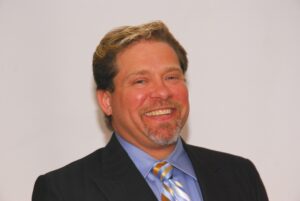It’s Occasionally Good to Loose Money.

There is nothing like saying a controversial statement like “its occasionally good to loose money”. It incites curiosity and sometimes contempt. However, more often than not there is a good point to be made.
I believe I quoted the mentor of my friend a while back who once said that “…writing off LESS than 5% on receivables means your not risking enough with your customers…”. It was a bold statement that inserted a numerical factor to a specific business risk. I have used that boldness in many different areas of developing my own business model.
I was approached with a situation a while back that further clarified my definition of business risk. A very successful young business owner approached me about his situation. He was a very hard working guy who feverishly saved his money. He had earned and saved money every year since he was 16 years of age. Now in his mid thirties he was well over a decade ahead of his piers. In the last two years his business grew to employ three times his usual number. The first year he made more money than ever before, but this last year he lost for the first time in his life. It was significant enough for him to begin to worry.
I looked at him (knowing his situation was still very strong) and told him “GOOD!… It’s a good thing you lost money this year.” He was more than a little taken back.
“Now you know the limits of your natural talent.” I advised.
Every great businessperson needs to know where their instinctive natural talent ends and the new/better/higher level behavior needs to be learned. I told him success grows in stages, built by learning the next “level” of implementation.
Many times young successful entrepreneurs keep growing using the same success model they began with. Maybe its personally controlling every aspect of their business, only to find out they run out of time or effort to manage it all themselves. So in order to get to the next level they must hire competent managers. For some people, delegation and the hiring of competent people is a talent that often times needs to be learned. Every growth stage requires the entrepreneur to learn some new set of skills. If an entrepreneur doesn’t grow their own personal skill sets along with their business they personally run the risk of sabotaging their own venture.
All people are afraid to change, even business owners. Loosing money forces a good business owner to face the facts that what they are doing isn’t working. They are forced to change or fiscally die. Managing a growing business requires constant change and adaptation of both actions and character.
A young entrepreneur bounded from success to success, making more money than I did at his age (times 10-20). He went from 1 to 35 employees in 24 months. He took his success and began a buying spree. Three company purchases later he was in my office excited and ready for the “next level”. Even though he still had positive cash flow I warned him against spreading himself too thin in both time, energy, resources and ability to attract the right people. His confidence was still very strong. Failure was not an option he considered. Though it sounds romantic to be fearless, my concern is that without experiencing at least one downturn his view of success is that its too easy.
About six months ago my son forwarded me another article about Elon Musk, a man who seemed to bound from one giant success to another. I told him back then that probably in his lifetime he will see Elon Musk being the quintessential poster boy for roller coaster entrepreneurial-ism. My son did not agree with his father. I told him that Elon Musk is acting as if his actions have no consequences, that no matter what he does it will succeed. Too much success does that to a person. He needs to fail to regain his balance.
My friends mentor went through several colossal law suits in a two year trial, totaling well over two hundred million dollars. Before that occurred he had never lost a single battle. After he had come face to face with his own fiscal demise (and barely surviving by the way), his heart was always sensitive to those who fell on hard times. His perspective was always balanced and fare, avoiding greed wherever he sensed it. It was good for him to loose money. It made him a much better man.
